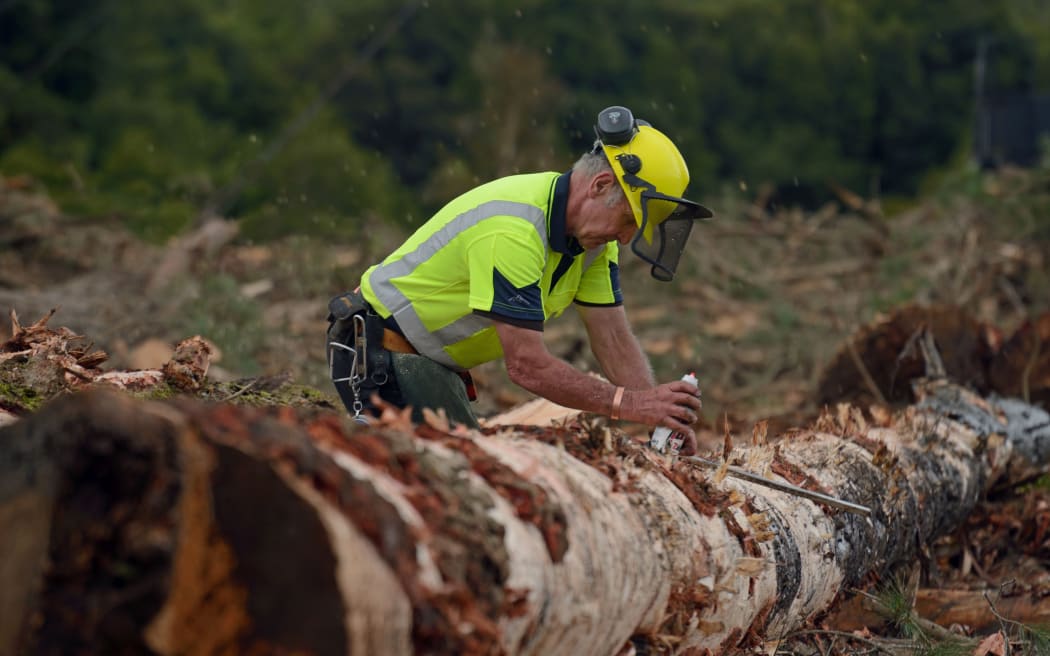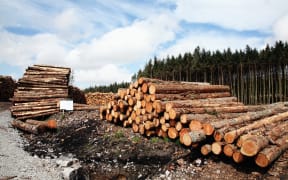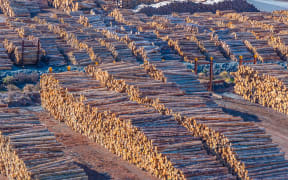Major changes are looming for the forestry sector as the deluge of raw log exports fades amid dwindling supplies and demands increase from the building industry and other users.

Photo: 123RF / Lakeview Image Library
An industry report by investment house Forsyth Barr suggests the mainstay of the industry, log exports, will peak and then drop by more than a third within a decade.
"Export volumes will peak by 2026 then decline as insufficient planting activity after the 1990s boom means total harvest volumes will fall," report author and head of research Andy Bowley said.
"The use of wood domestically is undergoing a transformation through the use of trees to sequester carbon, power boilers and as a low carbon building material alternative."
He said that would see the medium-term outlook driven by small forestry owners, who would influence export log volumes depending on demand and supply chain constraints.
Another wild card is the government's plan to change the industry towards more domestic processing and higher value processed products.
And a shift to net-zero emissions will further change industry dynamics as moves to biofuels and carbon sequestering may spur more planting and higher prices, but not for the export trade as it currently operates.
"Over the medium term this could be detrimental to export volumes but over the longer term could be very beneficial," Bowley said.
Small forest owners rule - for now
Forestry Owners Association chief executive Phil Taylor said small forest owners would remain influential in the short term.
"Back in the 1990s, it was the small forest owners who largely developed or established new forests on the back of very strong markets at that time, so they currently represent quite a significant component of the harvest volumes coming out of New Zealand."
He said small forestry fowners would be harvesting many of the export logs in the near term, but that could change depending on market conditions.
"Typically the small forest owners have one opportunity in say, 28- to 30 years, to optimize the return on their investment so they are very sensitive to what's happening out in the market, and they have the ability to either to harvest or stop harvesting at very short notice."
Taylor said large owners had needs to fill production and earn cash which would see them weather out markets downturns.
But he said bigger challenges to the sector loom on the horizon with ambitions to encourage more local processing.
"We may actually see a high proportion of the logs that are currently exported processed domestically, and then exported as a higher valued product."
Change and help needed
Wood Processors & Manufacturers Association chair Brian Stanley said a lot of investment and government help would be needed to scale-up domestic production to become a thriving export industry.
"The global subsidies and non-tariff barriers that are applied by every other country in the world except New Zealand make it difficult for our sawmillers to actually compete in the global marketplace."
"We hope that the industry transformation plan is going to find some levers to pull to mitigate some of that stuff."
Stanley said the government should be looking at tax changes to encourage the building of new sawmills and attract investment.
"If you build a new sawmill over in the United States, it is written off in 12 months. If you build a new sawmill in New Zealand it gets written off over 10 or 15 years.
He said the forestry sector also needed guaranteed long-term wood supplies .
"They can only get short-term supply contracts and nobody is going to invest $15m to $20m, or probably more -- up to $60m for a modern state-of-the-art sawmill -- unless they've got guaranteed supply contracts."






